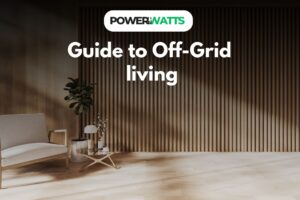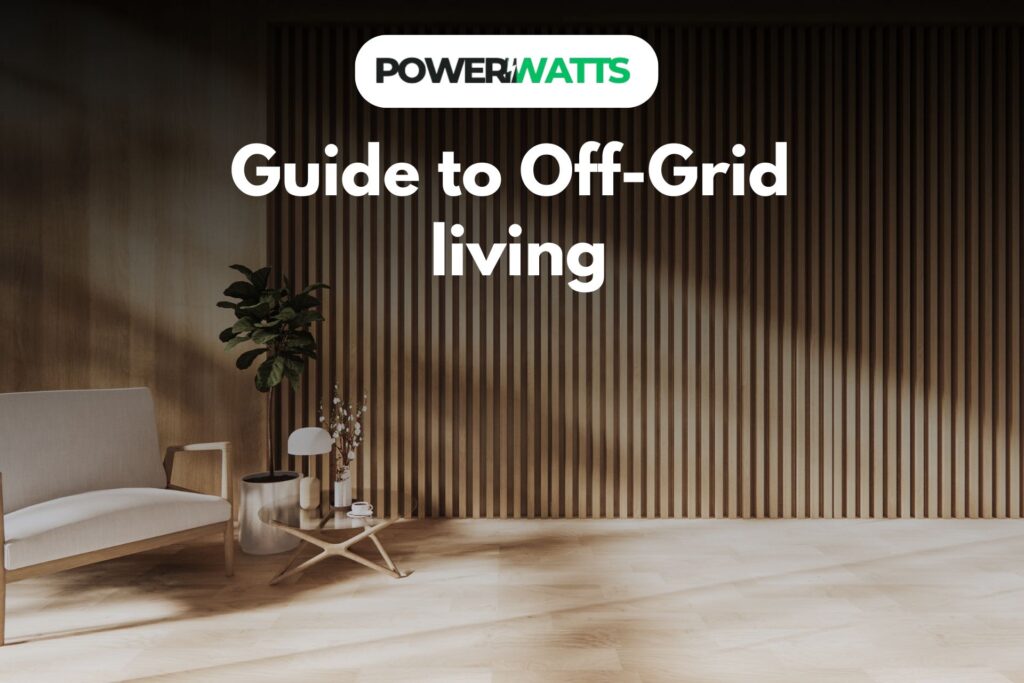Imagine not having to pay for electricity or gas because we are going to guide to off-grid living. One where you are in touch with nature and away from the worries of modern life. This dream isn’t just an idea; living off the grid makes it real. This detailed guide will explain the secrets of this off-grid living and show you how to use green energy and properly dispose of your trash in an eco-friendly way.
What Does It Mean to Live Off-Grid?
To live off-grid, you have to make your life as independent as possible from outside systems. This can mean anything from not using any public services at all to only using some of them while still being very independent. The main reasons people choose to live off the grid are usually:
- Ecological sustainability means lowering your carbon footprint and encouraging people to do things that are good for the environment.
- Connecting with nature and living a less stressed life can help your mental health.
To live off the grid, you need to carefully plan your trip and think about many things, such as your position, your resources, and your personal goals.

Off-Grid Solar System Design
A well-designed solar system is essential for off-grid life. The main steps are:
- Energy Needs Assessment: List all appliances and their wattage to calculate daily energy use. The needed solar system size will depend on this.
- Selecting Solar Panels: Choose high-efficiency solar panels for your energy demands and space. Take warranty and durability into account.
- Choose an Inverter: Solar panels create DC, which the inverter transforms into AC for residential usage. Select an inverter that can withstand peak demand.
- Battery Storage: Buy a battery bank to store solar energy for overcast or nighttime usage. Lithium-ion batteries are valued for their durability and efficiency.
- Monitoring System: Track energy output and consumption to optimize the use and discover concerns early.
Solar Power Installation Guide to Off-Grid Living
After system design, installation may commence. The process is as follows:
- Site Preparation: Locate it in full light, away from trees and buildings.
- Solar panels should be mounted on a solid mount and positioned appropriately to gather sunlight.
- Wire the solar panels to the inverter and battery bank. Secure and waterproof all connections.
- After installation, test the system to check it works. Ensure the inverter converts electricity effectively and the batteries charge appropriately.
- Maintenance: Clean panels and check connections regularly to preserve efficiency and system longevity.
Energy Sources for Off-Grid Living
Renewable Energy
Setting up a stable energy source is one of the most important parts of living off the grid. These are the most popular types of green energy:
- Solar Power: Many people choose solar panels because they are cheap and easy to set up. They let people make their own power from sunlight, which can then be saved in batteries and used later. Over time, solar energy systems can cut your power costs by a lot or even get rid of them completely.
- Wind Energy: People who live in the right places can get extra power from wind machines. Wind energy can be used with sun energy, especially in places where the wind blows in the same direction all the time.
- Hydro Power: Micro-hydro systems can be put in place to make power if the land is near a source of moving water. This method isn’t used very often but when it does also it can be very useful.
Buying tools and tracking systems that use less energy can help an off-grid home use energy even more efficiently.
Water Management Strategies
- Gathering and Cleaning Water: Being able to get clean water is important for anyone who wants to live off the grid. Here are some ways to take care of water resources:
- Rainwater Harvesting: It is normal to put in methods to catch rainwater. Using drains and storage tanks to collect and store rainwater for uses like cooking, drinking, and watering plants is part of this.
- Water from a well: By drilling a well, you can get water all the time. However, it needs the right permissions and could have big start-up costs.
- Filtration of water: No matter where the water comes from, it needs to be cleaned. Putting money into filter systems makes sure that water is safe to drink.
It is also important to know the area rules about water use and make sure you follow them.
Waste Management Solutions
Being careful with trash is important when living off the grid. Take a look at these strategies:
- By composting: By composting biological garbage, less of it ends up in landfills and more nutrient-rich soil is made for planting. Worm farms or compost bins can be good options.
- Systems that use greywater: Using water from sinks and showers to water plants can help save water. When built correctly, greywater systems can help you get rid of trash and help plants at the same time.
- Recycling and upcycling: Living off the grid can have less of an effect on the earth if people recycle and find new uses for old things.
To make sure you follow the rules and are good for the environment then you need to know how to get rid of trash in your area.
Shelter Options for Living Off the Grid
Choosing the right housing is an important part of living off the grid. Some options are:
- Small Houses: Tiny homes can be built to work without the power grid, even though they are small and often moveable. They usually have methods that use less energy and things that last a long time.
- Cabins: In the country, building a cabin can give you a cozy but wild place to live. There are solar panels, wood fires, and rainwater collection systems that can be added to cabins.
- Leisure cars can be used as temporary or permanent houses that are not connected to the power grid. They are mobile and flexible, so people can move whenever they need to.
When picking a shelter, you should think about where it is, the weather, and the resources that are nearby. Insulation and structures that use less energy can make a space more comfortable and use less energy.
Community and Support Networks
Off-grid living often stresses freedom, but having help from others can be very helpful. By working with nearby off-grid villages, you can:
- Shared Resources: People in a community often share tools, equipment, and information, which lowers costs for everyone and raises skill levels.
- Emotional Support: Making connections with people who share your values can help you feel like you fit and give you support when things get tough.
- Sharing skills: Learning from other people’s experiences can help you get used to living off the grid faster.
Joining online sites and social media groups that are all about living off the grid can also give you useful information and support.

Conclusion
As you are aware, off-grid living is a transformational path to self-sufficiency and sustainability. By leaving public utilities then you gain freedom and a connection to nature. Off-grid is a peaceful life that builds resilience and environmental awareness. Ready to become independent? Get a Quote to get unlimited options.


